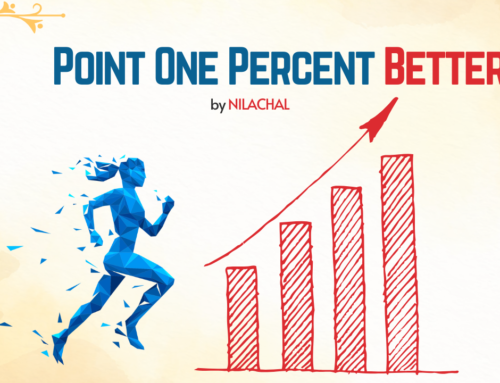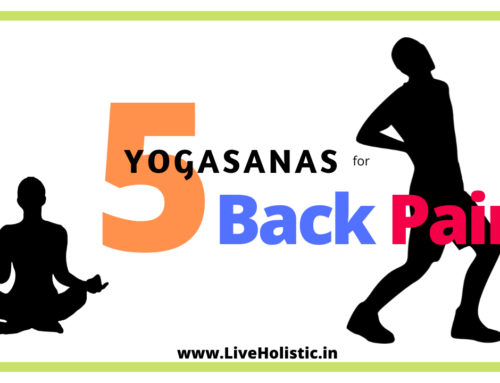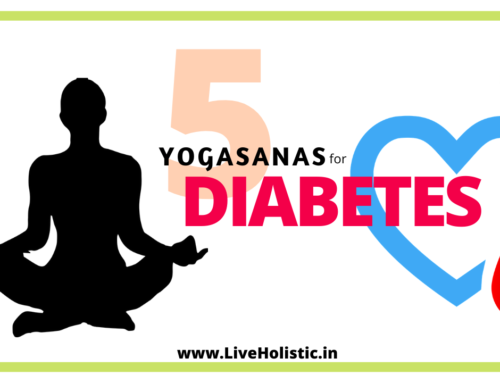
7 Ways to Manage Mental Health
Introduction
WHO states that “Mental health is a state of mental well-being that enables people to cope with the stresses of life, realize their abilities, learn well and work well, and contribute to their community.”
Our mental health impacts our decision-making, relationship-building, and societal influence. The concept of mental health is complex. It includes not only the absence of mental disorders but also the range of difficulties, levels of suffering, and social and clinical consequences that people may encounter.
“Its not stress that kills us, it is our reaction to it.”
– Hans Selye
7 Ways to Manage Mental Health
- YOGA: Yogic Lifestyle and Yogic tools like asana and pranayama develop equilibrium among body, mind, and soul. This develops holistic health and helps to de-stress.

Figure: Yoga
Yoga understands the influence of the mind on the body as well as that of the body on the mind. Yogic concepts and techniques enable the development of the right attitudes towards life and enable us to correct the numerous internal and external imbalances we suffer due to our wrong lifestyle. Yoga enables us to take responsibility for our own health and happiness.
“If you want to be healthy do healthy things, if you want to be happy do happy things”.
— Swami Gitananda Giri

Figure: Mechanism of Yoga on Stress. Source: SBV
2. TALK TO YOURSELF: Give time to yourself. Think and analyze your situation. Introspection and positive affirmations are great tools.

Figure: TALK TO YOURSELF
According to psychologist Charles Fernyhough, we have more power than we may realize over our inner voice. Numerous research studies have shown that using positive, instructive, and motivational types of self-talk improves performance. The effects of motivated self-talk on adolescent athletes’ task performance, anxiety, and sense of self were observed in a study. Participants in that study were divided into experimental and control groups randomly. The two groups followed the same training program with the experimental group practicing the use of self-talk. The study’s findings demonstrated how self-talk might lessen cognitive worry and boost self-confidence.
3. SMILE: Smile is a powerful medicine for stress. Whatever the situation, facing it with a smile makes it simpler.

As William James stated, and confirmed by several psychological studies, the act of smiling positively affects on our mental status — we become happier when we laugh. Various happy hormones like dopamine, endorphins, and serotonin are released when one smiles. And the endorphins as a result serve as natural pain relievers. Even a forced smile can lead to a mood boost.“Sometimes your joy is the source of your smile, but sometimes your smile can be the source of your joy.”
“Sometimes your joy is the source of your smile, but sometimes your smile can be the source of your joy.”
— Thich Nhat Hanh
4. MANAGE YOUR TIME: Proper time management increases work efficiency and reduces stressful conditions.

Figure: Manage your time.
Many college students may find the academic experience very stressful. A study was conducted on 165 students who completed a questionnaire assessing their time management behaviors and attitudes, stress, and self-perceptions of performance and grade point average (GPA). The study revealed major findings. Students who perceived control of their time reported significantly greater evaluations of their performance, greater work and life satisfaction, less role ambiguity, less role overload, and fewer job-induced and somatic tensions. This shows that time management has a great impact on our mental health.

Figure: Stephen Covey’s 4 Quadrant Rules for Time Management. Source: First Things First
5. HEALTHY DIET: The type of food we eat determines our mind and body. So a healthy diet is essential for coping stress.

Figure: Healthy Diet
Actually, there is a complex relationship between diet and our mental health. The relationship between diet and our mental health is often bidirectional. For example, changes in diet may influence psychiatric disorders through direct effects on mood, while the development of psychiatric influence psychiatric disorders through directly effects on mood, while the development of psychiatric disorders can lead to changes in eating habits.

Figure: The myriad and complex relationships that can exist between diet and psychiatric symptoms.
Different nutrients have different impacts on our brain and mind. Omega 3 and Omega 6 are essential fatty acids that are linked to preventing degenerative brain conditions that come from our diet. Protein and amino acids are building block nutrients of growth and development that manipulate how we feel and behave. Similarly, energy comes from carbohydrates that our body digests into glucose or blood sugar. The frontal lobes of our brain use glucose for various mental functions. Our brain would be susceptible to brain diseases and mental decline without powerful micronutrients like Vitamin B6, Vitamin B12, and Folic acid. Also, trace amounts of minerals like copper, zinc, and sodium are also fundamental to brain health and early cognitive development.
6. TAKE GOOD SLEEP: A proper 6–8 hr adequate sound sleep helps to de-stress the entire body and mind.

Figure: Sleep
Sleep and happiness are closely linked, and their relationship is bi-directional. Improving sleep can have a beneficial impact on mental health and can be a component of treating many psychiatric disorders. Research in children has shown that sleep deprivation is linked to more negative moods and challenges with emotional regulation; on the other hand, children and teens who get adequate amounts of sleep report feeling happier. Around 75% of depressed people show symptoms of insomnia. Also, Anxiety disorders have a strong association with sleeping problems. Worry and fear contribute to a state of hyperarousal in which the mind is racing, and hyperarousal is considered to be a central contributor to insomnia. Healthy amounts of sleep are associated with better mood, improved productivity, and even heightened satisfaction with life. Therefore, sleep is essential to be mindful.
7. ALWAYS SHOW GRATITUDE: There is a calmness to a life lived in gratitude, a quiet joy. Thus, a stress-free life.

Figure: Gratitude.
Over the last twenty years, positive psychology has been studying human qualities and strengths in order to establish the “science of positive subjective experience, positive individual traits, and positive institutions.” Gratitude emerged from the study of positive psychology as a multidimensional concept involving an emotion, a personality trait, or a coping response. This finding is, however, not new as this wisdom of gratitude has already been mentioned in ancient Vedic literature of India and practiced since time immemorial.
Gratitude is effective in improving mental health in various ways. First, Gratitude aids in interpreting life events and stimuli positively, contradicting the negative self-perceptions associated with depression and anxiety. Second, gratitude is a less critical, less punishing, and more compassionate view of oneself. Lastly, gratitude is linked to improved relationship connections and satisfaction, serving as a strong protective mechanism against psychopathology.







Leave A Comment